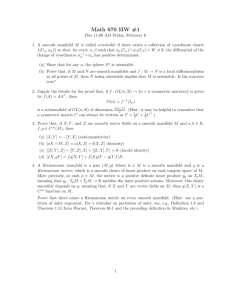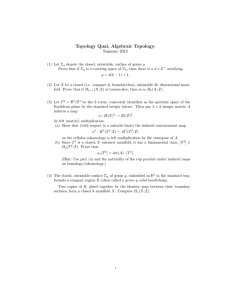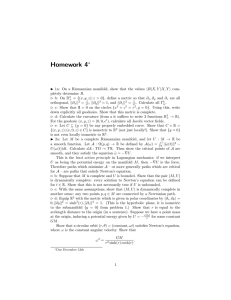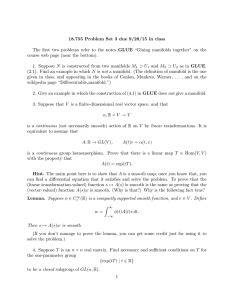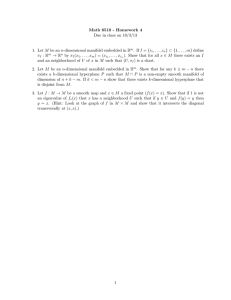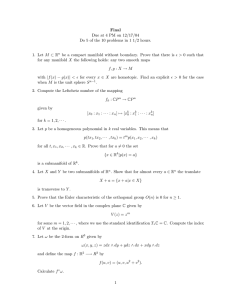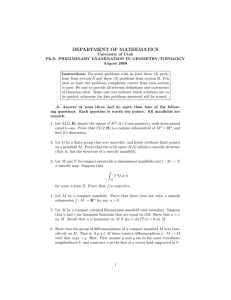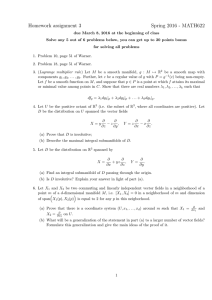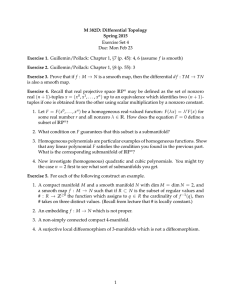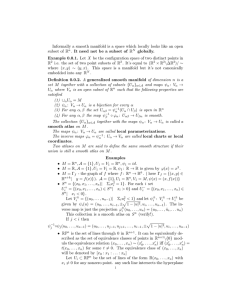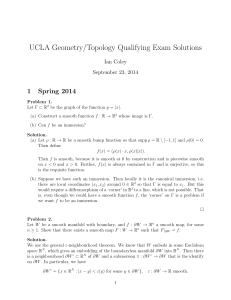Math 8250 HW #1
advertisement
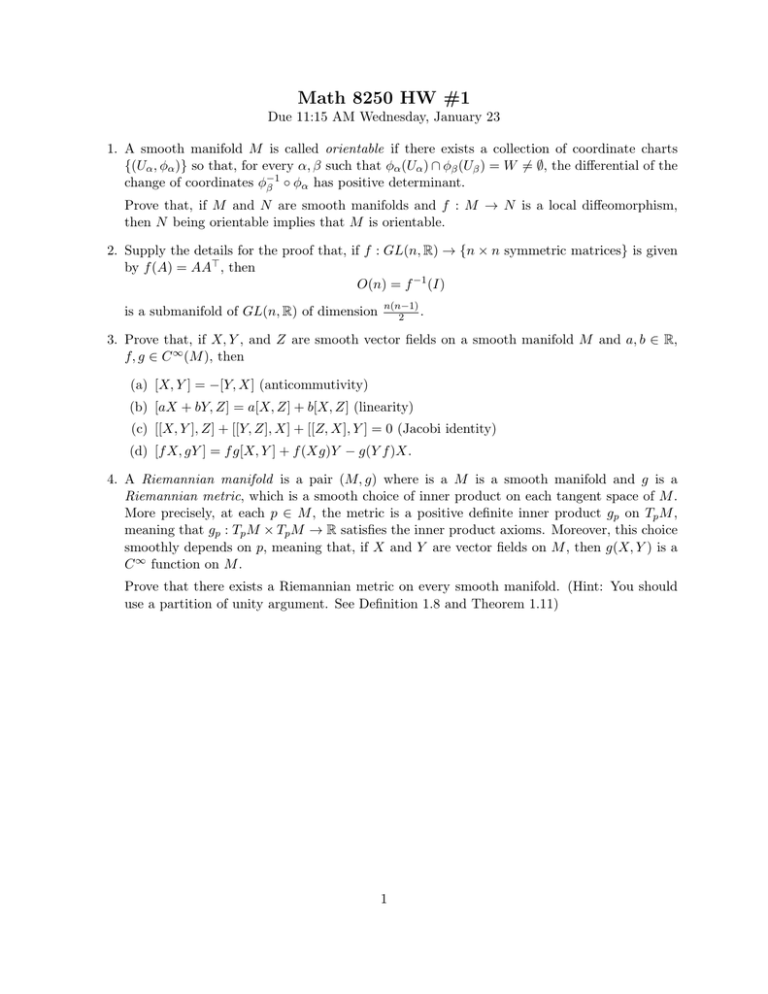
Math 8250 HW #1
Due 11:15 AM Wednesday, January 23
1. A smooth manifold M is called orientable if there exists a collection of coordinate charts
{(Uα , φα )} so that, for every α, β such that φα (Uα ) ∩ φβ (Uβ ) = W 6= ∅, the differential of the
change of coordinates φ−1
β ◦ φα has positive determinant.
Prove that, if M and N are smooth manifolds and f : M → N is a local diffeomorphism,
then N being orientable implies that M is orientable.
2. Supply the details for the proof that, if f : GL(n, R) → {n × n symmetric matrices} is given
by f (A) = AA> , then
O(n) = f −1 (I)
is a submanifold of GL(n, R) of dimension
n(n−1)
.
2
3. Prove that, if X, Y , and Z are smooth vector fields on a smooth manifold M and a, b ∈ R,
f, g ∈ C ∞ (M ), then
(a) [X, Y ] = −[Y, X] (anticommutivity)
(b) [aX + bY, Z] = a[X, Z] + b[X, Z] (linearity)
(c) [[X, Y ], Z] + [[Y, Z], X] + [[Z, X], Y ] = 0 (Jacobi identity)
(d) [f X, gY ] = f g[X, Y ] + f (Xg)Y − g(Y f )X.
4. A Riemannian manifold is a pair (M, g) where is a M is a smooth manifold and g is a
Riemannian metric, which is a smooth choice of inner product on each tangent space of M .
More precisely, at each p ∈ M , the metric is a positive definite inner product gp on Tp M ,
meaning that gp : Tp M × Tp M → R satisfies the inner product axioms. Moreover, this choice
smoothly depends on p, meaning that, if X and Y are vector fields on M , then g(X, Y ) is a
C ∞ function on M .
Prove that there exists a Riemannian metric on every smooth manifold. (Hint: You should
use a partition of unity argument. See Definition 1.8 and Theorem 1.11)
1
